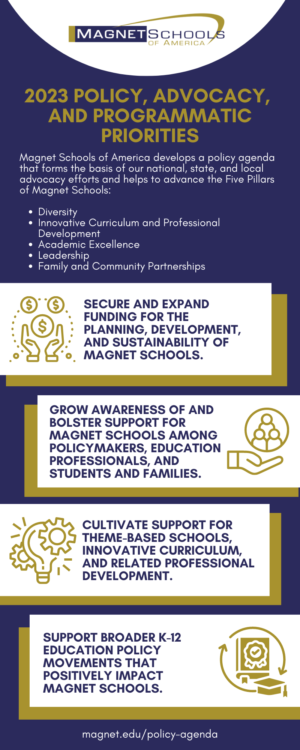 Each year, through input gathered at our annual Policy Training Conference, Magnet Schools of America develops a policy agenda that forms the basis of our national, state, and local advocacy efforts and helps to advance the Five Pillars of Magnet Schools:
Each year, through input gathered at our annual Policy Training Conference, Magnet Schools of America develops a policy agenda that forms the basis of our national, state, and local advocacy efforts and helps to advance the Five Pillars of Magnet Schools:
- Diversity
- Innovative Curriculum and Professional Development
- Academic Excellence
- Leadership
- Family and Community Partnerships
Below are the 2023 policy, advocacy, and programmatic priorities for MSA. The priorities are linked explicitly to one or more of the Pillars, and each priority includes an indication of whether MSA intends to take a lead or a partnership role in advancing the priority.











